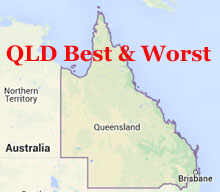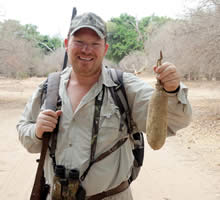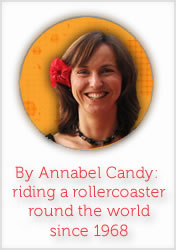I thought I’d Never Change… But I Finally Did

Every time I mess things up or something goes wrong the same old thoughts loop through my head:
“You’ll never change. You always revert to type. You always stuff things up.”
But last year I surprised myself because I actually changed. I really did and it was an amazing adventure.
Last year I finally kicked an addiction that’s been hounding me for over 30 years. During those three decades of addiction I quit the habit many times but always took it up again, sometimes after years of stopping. Of course I could cave in and take the habit up again (I’ve only been free of it for 11 months now) but somehow I’ve got a feeling that this is it. That finally I’m in control.
The wind of change has come, blown some persistent cobwebs away and spring cleaned my psyche.
That change has come through mindfulness, by becoming aware of my feelings and thoughts and starting to recognize them and label them as fleeting thoughts like the ones above, or feelings that, although uncomfortable or painful at the time, won’t last forever.
That’s an amazing lesson to learn in your mid-forties and one which I’m teaching my kids now so that they’ll be able to deal with the slings and arrows of adult life without being prone to depression or addiction in its many possible forms as I have been.
Since the age of 13 years old I’ve spent so long numbing my emotions that now it’s hard to even notice them and know what they are. But I’m learning to recognise the messages my body sends me, like a tightening in the jaw, a lurch of the stomach or a hardening in my chest and label them as anger, fear, shame or whatever they may be. I’m learning to let those emotions be rather than try to deaden them.
This willingness to experience my emotions and deal with them in a healthy way is such a huge change that it still amazes me that I’ve made it. I’d read that the brain is plastic and can change. I’d heard that even people in their seventies can change their brain by retraining it but I didn’t think that applied to me.
I’d given up hope. Having read a bookshelf of personal development books and tried persistently to change but failed repeatedly I thought I was so stuck in my ways that I could never change.
But I have changed, and not just because I beaten a chronic addiction, although that’s a concrete expression of how improved I am. My relationships have improved, my self esteem has returned and I’ve recovered from a bout of depression without taking anti-depressants too.
For the first time when the year came to an end I feel like I didn’t just grow older, I also grew wiser.
So how did I finally bring about this change? I’ve had help in the form of private therapy and group therapy but I’ve also taken responsibility for myself. I’ve been reading about mindfulness and meditation and practicing them on a daily basis for nine months now.
In many ways I feel as if mindfulness has saved my life. On good days it’s brought back my inner peace and joie de vivre and it’s helped me cope with the inevitable bad days without getting caught up in those self-destructive thoughts.
So even if you think you’ll never change please know that you can if you really want to and if you really work at it. If you understand how change is possible through mindfulness and make the effort to work on it every day for months on end.
So I hope that this blog post and the books mentioned below will bring you hope that you can change. You really can change. I did and I know you can too.
Sometimes our thoughts are our greatest enemy but mindfulness can chase them away and bring the lasting change that you’ve always wanted to see in your life but never before though possible.
Of course I still mess things up. I still get anxious and deal with fear on a regular basis. I still have bad thoughts. But now I know they’re just thoughts and instead of making me despair they make me laugh because I can see how ridiculous they are.
Here are three books I recommend to get you started with changing your life through mindfulness:
1. Mindsight: the new science of personal transformation by Daniel Siegel
Daniel Siegel M.D. is a clinical professor of psychiatry at UCLA School of Medicine.
Mindsight explains what neuroplasticity is and how it’s possible to change your brain. It includes examples and exercises to get you started and really helped me understand many of the psychological issues that have driven me throughout my life.
2. The Whole-Brain Child: 12 Revolutionary Strategies to Nurture Your Child’s Developing Mind, Survive Everyday Parenting Struggles, and Help Your Family Thrive Daniel Siegel and Tina Payne Bryson
Even if you’re not a parent The Whole-Brain Child will help you understand how your upbringing created the person you are today and how you can overcome that to change yourself for the better.
This book demystifies childhood meltdowns and aggravation, explains the new science of how a child’s brain is wired and how it matures. it teaches you how, by applying these discoveries to everyday life and (if you have children) parenting, you can turn any outburst, argument, or fear into a chance to integrate your brain, or your child’s brain, to foster change and growth no matter how old you are.
3. Peace is Every Breath: A Practice for our busy lives by Thich Nhat Hanh
I’ve included books by Thich Nhat Hanh in two other blog posts on books about mindfulness and books that will change your life. The Nobel peace prize nominee is an amazing writer, true expert on mindfulness and all round inspiration. I’d love to do a retreat at his village in France.
As usual when reading a book by Thich Nhat Hanh I noted heaps of quotes to keep me on track with my own mindfulness practice. I hope they’ll get you started with yours or keep you on track if you’re already practising mindfulness.
From the introduction
“All of us need to have a spiritual dimension in our lives. We need spiritual practice. If that practice is regular and solid, we will be able to transform the fear, anger, and despair in us and overcome the difficulties we all encounter in daily life.
The really good news is that spiritual practice can be done at any time of the day; it isn’t necessary to set aside a certain period exclusively for “Spiritual Practice” with a capital S and capital P. Our spiritual practice can be there at any moment, as we cultivate the energy of mindfulness and concentration.
No matter what you’re doing, you can choose to do it with your full presence, with mindfulness and concentration; and your action becomes a spiritual practice. With mindfulness, you breathe in, and there you are, well established in the here and the now.”
On happiness, suffering and every day blessings
“Mindfulness is attention; it’s the capacity to recognize what’s happening in each moment. What’s happening here is, you are turning on the tap and the water is flowing out for you. In Plum Village, in France, our water supply occasionally gets cut off. Every time that happens, we’re reminded that it’s a hardship when we don’t have water, and a happiness when we do. We can recognize happiness only when we remember the times of suffering!”
On eating with the family
Please note this is something I’m aiming for in the future. The Candy family is a long way from mealtimes like this but at least I now know change is possible and hope we can get closer to this vision in the future.
“Let breakfast be a time of relaxed and and quiet happiness. Don’t read the newspaper; don’t turn on the television; don’t listen to the radio. Sit up beautifully, and look at the food on the table. Look at each person sitting there with you, breathe, and smile as you acknowledge and appreciate them.
You can say a few words to the people at the table with you. For example: “It’s great to have you sitting here at breakfast with me, Mom!” or, “The weather is beautiful today, Dad, so remember to go outside and lie in the hammock for me,” or, “Sweetheart, I’m going to finish work a little earlier today, so I can be here to help you fix dinner.” These kinds of comments acknowledge the precious presence of the people you love; they are a practice of mindfulness. With mindfulness, the whole exchange during breakfast time can help you and your loved ones to recognize and cherish the many conditions of happiness that you do have.”
On having space
“The most precious gift you can offer to the people you love is a sense of spaciousness—space around, and space inside. Don’t get carried away from real life by busyness, troubles, and disappointments. Know how to shake off the worries and live joyfully. This is an art. Practice to let go of unimportant things that don’t bring any happiness. When you can let go, you have more space.”
“If we have too many worries, fear, and doubts, we have no room for living and loving. We need to practice letting go.
Breathing in, I see myself as space.
Breathing out I feel free.”“Buddhism teaches that joy and happiness arise from letting go. Please sit down and take an inventory of your life. There are things you’ve been hanging on to that really are not useful and deprive you of your freedom. Find the courage to let them go. An overloaded boat is easily capsized by wind and waves. Lighten your load, and your boat will travel more quickly and safely. You can offer the precious gift of freedom and space to your loved ones, but only if it is truly there in your own heart.”
A meditation to help us practice letting go of childhood wounds and become better children and parents
“Breathing in, I see myself as a five-year-old child.
Breathing out, I smile to the five-year-old child still alive and present in me.
Breathing in, I see the five-year-old child in me is fragile, vulnerable, wounded.
Breathing out, I embrace the five-year-old child in me with all my understanding and love.This is the first part of the practice, coming back to yourself to recognize and embrace the little child inside you. For so long now, you’ve been too busy to do this. Now you come back to talk with, listen to, and embrace that child. The healing process can begin.”
On living in the past
“Things you really do see or hear in the present may be the initial trigger, but once those old stories have been accessed, have risen up and taken center stage in your mind, you lose touch with the things you actually are seeing and hearing. Eventually you end up living most or all of your life inside the virtual world of your own memory instead of in the real world. The world inside your head is far removed from the world as it really is; yet you are quite convinced that your illusory world is the real one.”
On reliving old pains
“When you’re in touch with real life, what you directly see, hear, and touch is taken in by your sense organs forming sense impressions. These impressions are still relatively close to reality, though they also may be colored somewhat by the contents of your store consciousness. But if you close your eyes and call the images back up in your mind, at that point they will be experienced only as what we call “mere images.”
Your subconscious is filled with images, and you may find yourself returning to some of them as a kind of security blanket or comfort zone, even if they’re painful memories. It’s the same kind of morbid desire that makes people want to listen over and over again to tragic songs of mourning over loss and grief. It’s a habit that isn’t healthy or productive.”
A meditation before eating and to prevent overeating
“This food is the gift of the whole universe: the Earth, the sky, numerous living beings, and much hard work.
May we eat with mindfulness and gratitude, so as to be worthy to receive this food.
May we recognize and transform unwholesome mental formations, especially our greed, and learn to eat with moderation.
May we keep our compassion alive by eating in such a way that we reduce the suffering of living beings, preserve our planet, and reverse the process of global warming.
We accept this food so that we may nurture our sisterhood and brotherhood, build our community, and nourish our ideal of serving all living beings.At least once a week, we should remind ourselves of our desire to eat mindfully by reciting these five contemplation at our family meal.”
On sangha (meaning community) or the people we spend time with
“Living among people who have wholesome minds, we can nourish and protect the best qualities in our own minds, and with a
strong collective consciousness like that we can help to change and transform our society.”
On consumerism
“We already know we want to consume only things that bring joy and health to ourselves and our society, and we need the energy of mindfulness to keep us on track as we pass by one enticing display after another. Mindfulness helps us to recognize — more and more clearly the longer we practice — which things we really need and want in our life, and which things we can do very well
without. We are able to spend far less money on “stuff” without sacrificing any of our happiness. In fact, we have more happiness, because we can take a less stressful, more enjoyable job when we are not under the financial pressure of constantly having to buy newer, bigger and fancier houses, cars and other things.”
On wishlessness
“Contemplating wishlessness means looking deeply into the objects of our desires. When we do this, we can see the dangers, disasters, and distress that chasing after desires can bring. When a fish sees a fat, juicy worm wriggling in front of his face, if he knows there’s a sharp hook buried inside that worm, he will not bite into it, and his life will be saved. When we remember that we’re much more, much greater, than our cravings, we can tap into the part of ourselves that knows we already have all we really need. Contemplating wishlessness preserves our freedom, so that we never have to become victims of the objects of craving. Thanks to that freedom, we can
live at ease, in peace and happiness.”
On dealing with anger towards others
“If we’re not able to do this calmly in person, we can write a note. We should Say three things:
1. I’m angry with you, and I want you to know it.
2. I am doing my best to practice.
3. Please help me.Already after writing down these three sentences, even before the note is received, our anger will go down a little bit. When we’re upset, we have a responsibility to let the other person know. The other person may be our father or mother, our sister or brother, our son or daughter, our friend, colleague, or co-worker.”
Various Meditations or Gathas
Some of these verses might seem a bit woo woo but I like the idea of having rituals in my life and a reminder to practice mindfulness, to pause and to be grateful for the blessings that are all around me.
Greeting Someone
“A lotus for you,
a Buddha to be.”
Following the Breath
“Breathing in, I calm my body.
Breathing out, I smile.
Dwelling in the present moment,
I know this is a wonderful moment.”
Morning Meditation
“The Dharma body radiates this morning.
In concentration, my heart is at peace. A half-smile is born upon my lips.
This is a new day.
I vow to go through it in mindfulness.
The sun of wisdom has now risen, shining in every direction.”
Walking meditation
“The mindfulness can go in a thousand directions,
But on this beautiful path, I walk in peace.
With each step, a gentle wind blows,
With each step, a flower blooms.”
Ending the Day
“The day is ending,
our life is one day shorter.
Let us look carefully at what we have done.
Let us practice diligently,
putting our whole heart into the path of meditation.
Let us live deeply each moment in freedom,
so time does not slip away meaninglessly.”
If you read only one of these quotes make it the last one. It’s a call to action to practice mindfulness and make whatever changes are needed so you can enjoy life right now. It’s a reminder that thoughts are just thoughts not fact and that we can create a better life for ourselves starting right now.
Do you believe people can change at any age? Have you changed over the years and if so how? Have you had false starts in your mission to change?
Now I’ve made these changes successfully I’m going to tackle another big change and try to end my lifelong addiction to chocolate. It’s a big task but I’m up for it and I’ll be keeping you posted here.
Are you planning any changes this year? No matter how big or small they are we’d love to hear what changes you’d like to make over the coming year.
Thank you for reading!
Click here and subscribe now for free weekly updates, unique lifestyle tips that you won’t find on the blog and links to the best stories.









Beautiful and mindful post Annabel, what a wonderful journey. More power & love & laughter to you in 2014.
x
Mary-Lou
Hi Mary-Lou,
Thank you – I love the sound of that :)
I’m so happy for you, Annabel! I would say that some big changes happened for me in 2013 too – most notably shifting my relationship to fear.
I adore mindfulness, of course! It can indeed save lives.
Thank you Sandra that’s brilliant that we are all growing and changing for the better!
thanks so much for posting this, Annabel. You are a great blogger who has helped more people than you know, even more now by writing this.
Hi Annabel,
Congratulations for presenting your thoughts in such an amazing way. I really loved the blog and the message that you have delivered.
It is a real motivation for someone going through a tough phase. I have never heard of the books that you have mentioned, however I am gonna start with one of them. Hope I will be the master of my own in few years down the line.
PS: Why you wanna quit chocolates..They are amazing..;)
Thanks
Susan
Hi Susan,
I think chocolates amazing too – but I don’t seem to have an off button and my clothes are getting tighter and tighter so it’s time to quit that too – at least for a while :)
Haha, What I can see in the pics is a complete antithesis. You look really fit. ;)
A, you are a beautiful person. I love learning from you and love our friendship. You are inspritional and I am proud you have arrived at this point in your life x
From my memory, your excellently written post conjured up another phrase that has been used to describe a dear person: “a zest for living.”
How wonderful to live in moments feeling appropriate emotions while unencumbered by damaging substances or thoughts
..
This post came at just the right time for me, as I have made 2014 The Year of Getting to Know Me. When I read “Since the age of 13 years old I’ve spent so long numbing my emotions that now it’s hard to even notice them and know what they are.” it was like you were speaking for me. Put simply, I’ve allowed fear to push them down and make me run away from them. Funny, they always seem to catch up with you, though.
Some of your reading suggestions are going on my list, which grows longer by the day!
So glad I found your blog and I can’t wait to read more. Thanks for your honest sharing. :)
Great blog Annabel. You are such an inspiration! Jamila
Really, really found this helpful, Annabel. I’m starting my own journey away from an addiction, and have been wondering if mindfulness could help. I’ve just started a meditation routine, but wasn’t sure how to incorporate it. Will definitely check out your resources. Thanks!
(And here’s a bit of serendipity. I was on UCLA campus Friday for a routine medical test and walked past the Neuropsychiatry Institute. There was a sign with an arrow pointing to “Meditation Garden.” I thought, wow, and went on to my appointment. And now I’m getting a recommendation for a book by a UCLA psychiatry professor!)